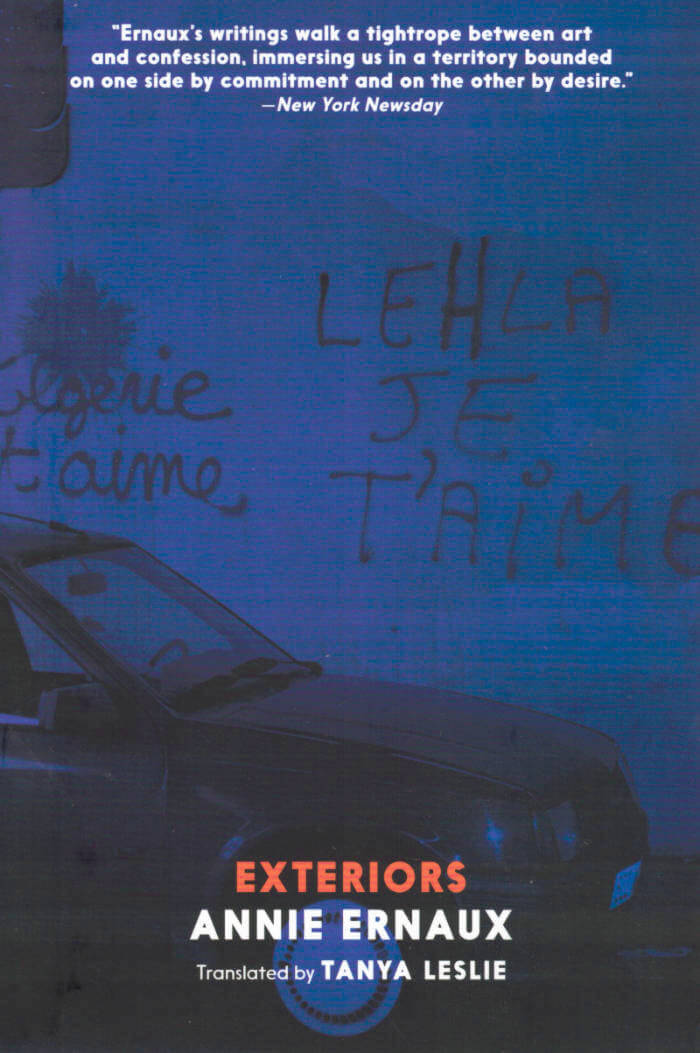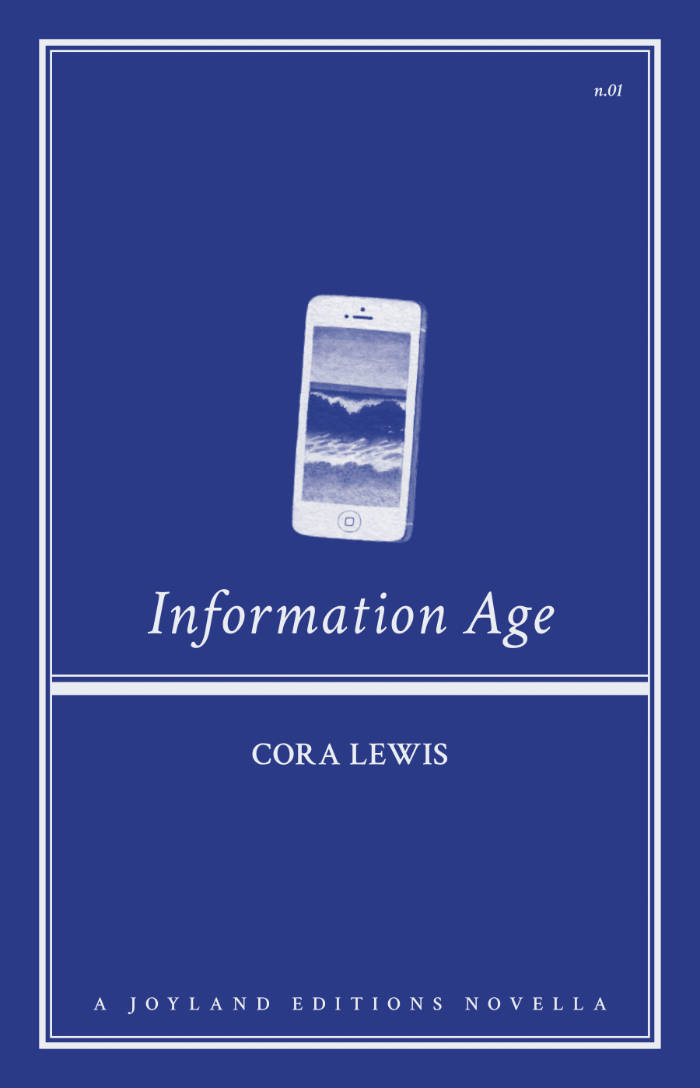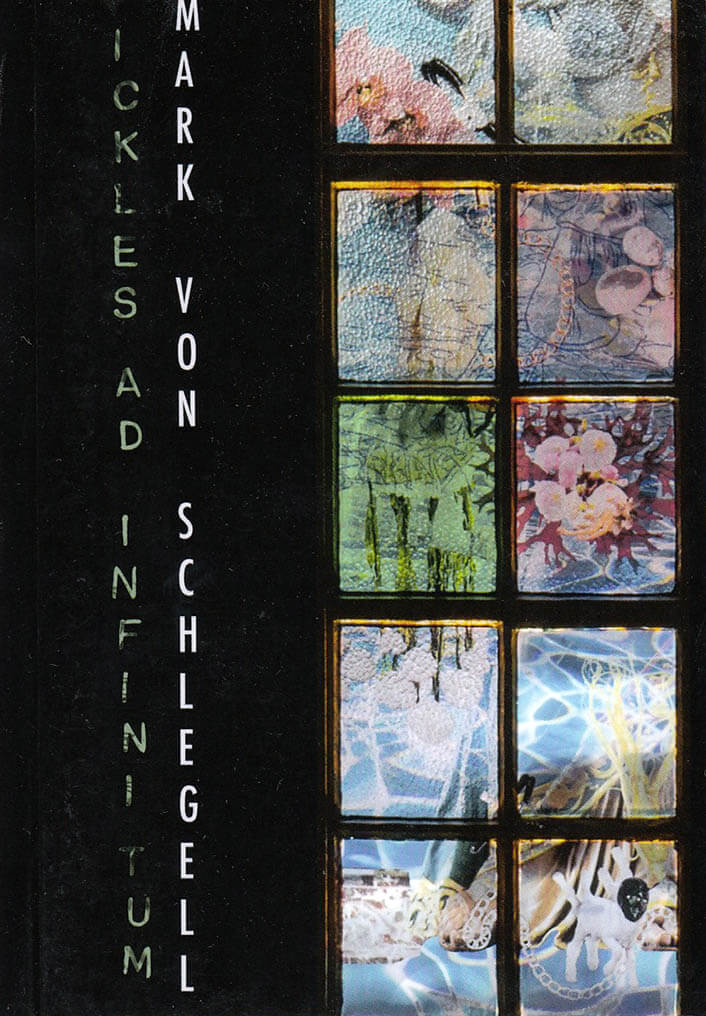
Exteriors
Taking the form of random journal entries over seven years, Exteriors captures the feeling of contemporary living on the outskirts of Paris. Poignantly lyrical, chaotic, and strangely alive.
Born in 1940, ANNIE ERNAUX grew up in Normandy, studied at Rouen University, and began teaching high school. From 1977 to 2000, she was a professor at the Centre National d'Enseignement par Correspondance. Her books, in particular A Man's Place and A Woman's Story, have become contemporary classics in France. She won the prestigious Prix Renaudot for A Man's Place when it was first published in French in 1984. The English edition was a New York Times Notable Book and a finalist for the Los Angeles Times Book Prize. The English edition of A Woman's Story was a New York Times Notable Book.







